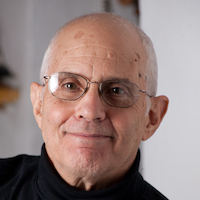As an author, my reaction to Penguin’s decision to withdraw the Indian edition of Wendy Doniger’s The Hindus: An Alternative History and destroy all remaining copies was, “Take my book, please!”
Won’t someone out there try to ban American Veda? I want my sales figures to soar, like Doniger’s have done. Her 812-page academic tome is probably sitting unread on thousands of coffee tables now, making a fine conversation piece for people who would never have heard of it if not for all the public furor. And I’m betting that the discontinued Indian edition will find its way into homes from Kashmir to Kanyakumari, via the internet or contraband.
Increasing readership, instead of restraining it, is only one reason suppressing books on religious grounds tends to backfire. It also makes the religion in question appear closed-minded and authoritarian; and, sadly, those are the last qualities one would normally associate with Hinduism, which might be the most open-sourced, pluralistic, and non-authoritarian tradition on the planet.
That said, there are a few things about the Penguin/Doniger controversy that have not been emphasized sufficiently in the media.
One is that hyperbole and falsehoods have been thrown around by both sides.
Some of the coverage suggests that only Hindu nationalists and religious fanatics find Doniger’s work objectionable. On the contrary, I have spoken to a number of scholars and well-informed Hindus (both in India and America) who feel that the book contains serious factual, linguistic and analytic errors. Not one of those critics can remotely be regarded as conservative, much less fundamentalist. And none of them is pleased by Penguin’s decision.
They would not support attempts to censor any book, because they value freedom of inquiry and expression, and because they know that the next book to be targeted might be one they value, maybe even one of their own.
At the same time, Doniger herself has been unfairly demeaned. Based on the content of her book, she was called “a woman hungry of sex,” which must have amused the 73-year-old University of Chicago professor. More importantly, the petition to ban the Indian edition—under a law prohibiting “malicious acts, intended to outrage religious feeling”—claims that Doniger wrote it “with a Christian missionary zeal and hidden agenda to denigrate Hindus and show their religion in a poor light.” The fact that Doniger is a Jew should put to rest the missionary motivation.
Was she out to denigrate Hindus and their religion?
I don’t know Professor Doniger, and I have not read her book, but based on my experience with many of her peers, I suspect she no more disrespects Hinduism than any other religion, and possibly less. Scholars are drawn mainly to subjects that fascinate them—not those they wish to damage—but sometimes their theoretical biases, analytic preferences, and quirky angles of inquiry produce work that some find not just incorrect but demeaning.
It should be understood that scholars of religion frequently publish articles and treatises that followers of Christianity, Judaism and Islam would find offensive. Some scholars analyze every religion through the lens of Marxist social theory, or Freudian psychoanalysis, or anthropology, or cultural history, leaving practitioners scratching their heads or shaking their fists. But the Abrahamic religions are well represented in Western universities. Scholars raised in those traditions—or at least in cultures in which those religions are prominent—are positioned to respond to work they consider flawed, and to do so according to the customs of their disciplines. Christianity and Judaism also have an ample supply of theologians who are welcome at the table. Hinduism does not enjoy that kind of representation in the Western academy.
One reason is that religious studies, as such, does not exist in India.
The country is packed with learned gurus, swamis, pandits and philosophers, who are more than qualified, but nonetheless lack the credentials to join the academic conversation. Plus, I’m told by sources inside the academy, the situation is exacerbated by political factors: Indian scholars resist critiquing powerful colleagues like Doniger for fear of being labeled a Hindu fundamentalist, and American scholars who also studied with gurus or practice yogic disciplines have their objectivity called into question. In either case, I’m told, criticism is a risky career move.
This leaves a vacuum that Hindu laypersons try to fill. But, as outsiders, they are not taken seriously by academics, and the frustration can lead to public upheavals instead of the spirited debate and rational discourse that advances scholarship.
No doubt, the situation will be remedied in time. More Hindus will choose doctorates in religious studies over engineering or medicine, and more scholars will study Eastern religions on their own terms, not just according to ill-fitting Western paradigms (for more on that issue, see the Dharma Academy of North America).
In the meantime, there are bound to be controversies, and books targeted for banning will sell more than they otherwise would. So, I hereby appeal to fanatics of all religions: Surely there is something in American Veda that offends you. Try to ban it! Picket Random House! Denounce me on CNN! Only please stop short of death threats. That wouldn’t be worth the royalties.
Love elephant and want to go steady?
Sign up for our (curated) daily and weekly newsletters!
Editor: Jenna Penielle Lyons
Photo: elephant journal archives












Read 3 comments and reply